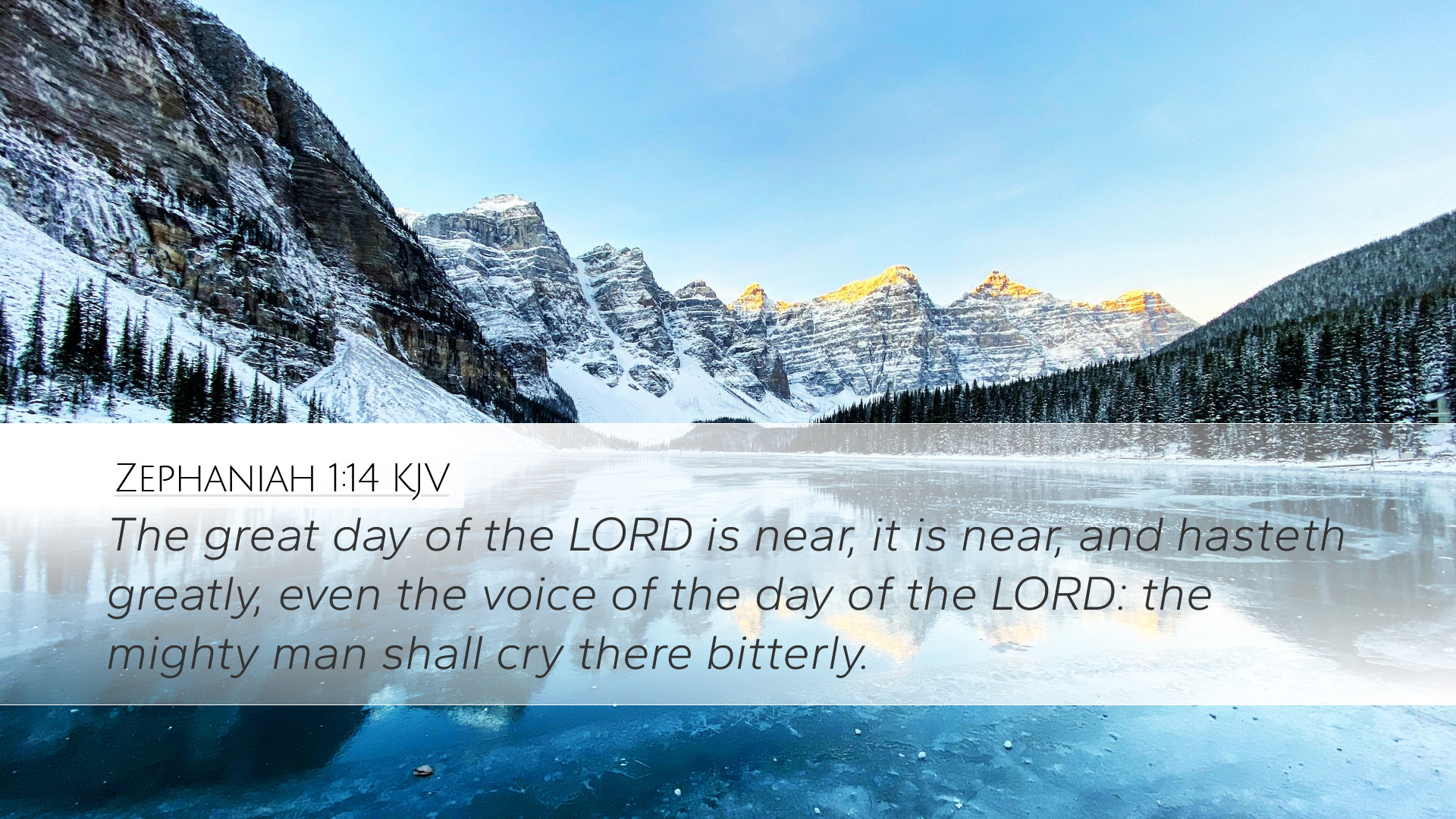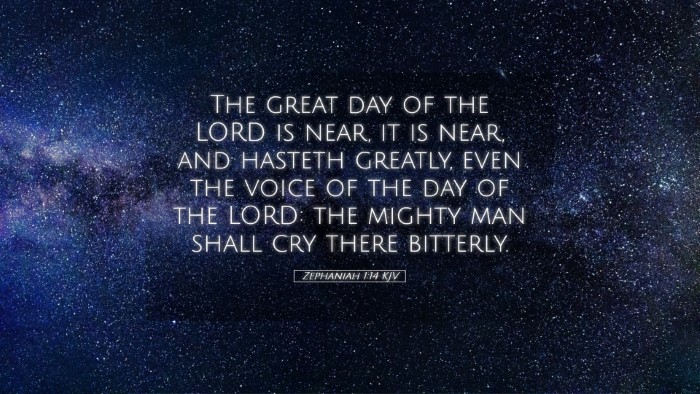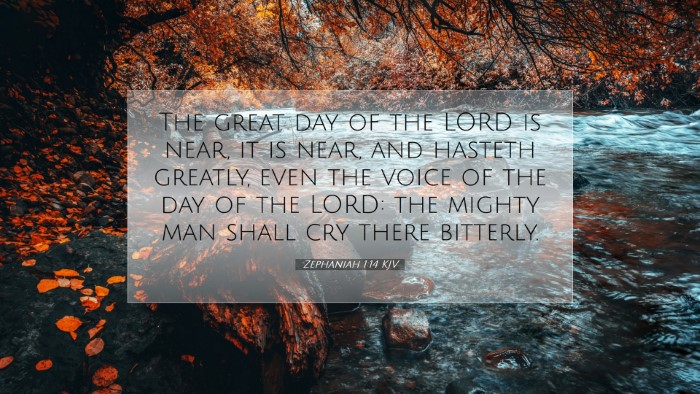Old Testament
Genesis Exodus Leviticus Numbers Deuteronomy Joshua Judges Ruth 1 Samuel 2 Samuel 1 Kings 2 Kings 1 Chronicles 2 Chronicles Ezra Nehemiah Esther Job Psalms Proverbs Ecclesiastes Song of Solomon Isaiah Jeremiah Lamentations Ezekiel Daniel Hosea Joel Amos Obadiah Jonah Micah Nahum Habakkuk Zephaniah Haggai Zechariah MalachiZephaniah 1:14
Zephaniah 1:14 KJV
The great day of the LORD is near, it is near, and hasteth greatly, even the voice of the day of the LORD: the mighty man shall cry there bitterly.
Zephaniah 1:14 Bible Commentary
Commentary on Zephaniah 1:14
Zephaniah 1:14 states: "The great day of the Lord is near, it is near and hasteth greatly, even the voice of the day of the Lord: the mighty man shall cry there bitterly." This verse encapsulates the theme of divine judgment that permeates the entire book of Zephaniah. In examining this passage, we draw insights from esteemed public domain commentaries including those of Matthew Henry, Albert Barnes, and Adam Clarke.
Overview of Zephaniah's Context
The Book of Zephaniah was written during a time of impending judgment upon Judah and the surrounding nations. It is one of the prophetic books that forewarns of the coming Day of the Lord, emphasizing the urgency of repentance and the seriousness of divine retribution. The historical context may involve the reign of King Josiah, though the specific time frame remains debated among scholars.
Analysis of Zephaniah 1:14
The highlighted verse serves several purposes in the broader narrative of Zephaniah.
The Day of the Lord
Matthew Henry elucidates that the "Day of the Lord" is a phrase used throughout scripture to denote a time when God intervenes in human affairs, specifically in judgment. Here, the repeated "is near, it is near" emphasizes the immediacy of the judgment that approaches.
Albert Barnes expands upon this, noting that the "great day" reflects a comprehensive scope of divine reckoning that encompasses both the present condemnation of Judah and future cosmic judgment. His commentary highlights that it is characterized not only by devastation but also by the establishment of God's final order.
The Urgency of Consequences
The phrase "hasteth greatly" signifies a swift approach, wherein the time for repentance is running out. Adam Clarke points out that the original Hebrew conveys a sense of speed and urgency. This notion accompanies a broader theme present in prophetic literature, wherein the prophets act as divine messengers urging the people to turn from wickedness before it's too late.
The Voice of Judgment
The “voice of the day of the Lord” implies an announcement of judgment that resounds with authority and might. It’s a representation of God's call to accountability. Matthew Henry notes that this voice shall not be ignored, for it comes with power that compels even the strongest among men to “cry there bitterly.” This poignantly depicts the depth of anguish that the imminent judgment will evoke.
Barnes further indicates that this great day can provoke responses that disrupt the very fabric of normalcy, where even "the mighty man" will fall to despair, illustrating that no one is immune from God's righteous judgment.
Theological Themes
- Divine Sovereignty: The passage reveals God’s ultimate control over the destiny of nations and individuals, emphasizing His role as the righteous judge.
- Call to Repentance: This verse serves as a warning, urging listeners to turn away from sin before the harsh realities of judgment unfold.
- Hope Amidst Judgment: Though primarily a message of warning, Zephaniah also provides glimpses of hope and restoration that follow judgments, pointing to the overall narrative of redemption in scripture.
Application for Today
For pastors, students, theologians, and Bible scholars, Zephaniah 1:14 serves as a relevant reminder of the impending accountability that looms over humanity. It invites contemplation of personal lives and corporate church actions in light of God's imminent return.
It encourages reflection on how the church today can heed the message of warning, encouraging communities to embrace repentance and reformation, thus fostering a relationship with God that anticipates not only judgment but also mercy.
In conclusion, the urgency and gravity found in Zephaniah 1:14 beckon believers to recognize the importance of living in readiness and faithfulness in their spiritual journey. As Matthew Henry wisely notes, being aware of the coming judgment should propel believers into deeper faith and action in their daily lives.


